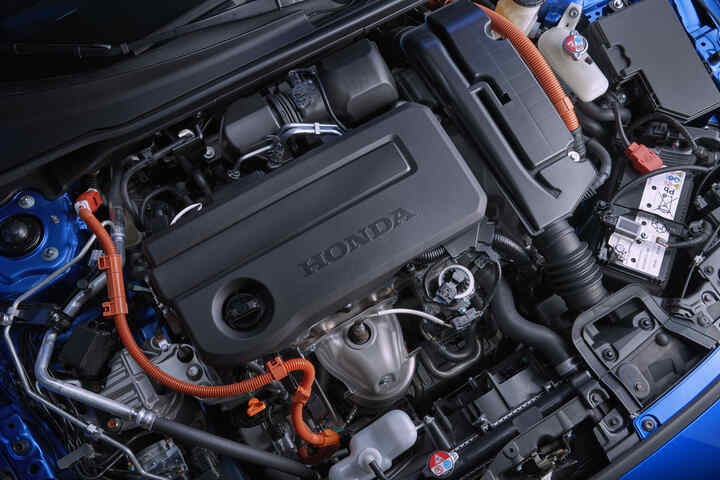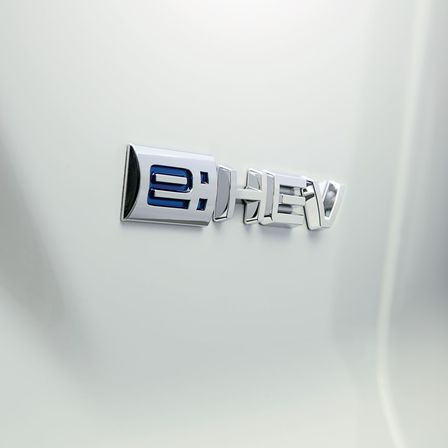
Honda Hybrid Technology
At Honda we are now in our fourth decade of hybrid, having been the first car maker to offer these vehicles in Europe in 1999.
Fast forward to 2023 and our latest e:HEV full hybrids continue to deliver impressive performance, efficiency and responsiveness, without at all compromising their smooth power.
Honda e:HEV powertrain explained
Honda's e:HEV powertrain is an advanced full hybrid system that combines its lithium-ion battery and electric motors, with a petrol engine acting as a generator. By doing this, it provides lower emissions and superior fuel efficiency compared to traditional internal combustion engines or mild hybrids. Central to its high-efficiency performance are its three distinct driving modes - Electric, Hybrid, and Engine Drive - enabling it to adapt seamlessly to different driving conditions.
Silent Power
This unique powertrain means your Honda operates with silent, yet highly receptive performance by drawing power from the lithium-ion battery - something that a mild hybrid cannot do. In addition, while running off the battery it is releasing zero tailpipe emissions. You may find yourself in EV mode when cruising out-of-town but typically electric mode occurs over short distances, in low-speed conditions or when accelerating from a standstill such as in urban driving.
Self-Charging Efficiency
Generally, as speeds and distances increase, and as the battery starts to deplete, the car will shift to hybrid mode. This is where the petrol engine supplies the energy to the generator motor, which in turn creates electricity to power the drive motor and turn the road wheels. When required, this energy will also recharge the lithium-ion battery alongside the regenerative braking system meaning there is no need to plug our full hybrids into the mains supply as they are entirely self-charging.
Conventional Transition
During constant higher speeds, the drive motor disconnects and the clutch will engage as the petrol engine powers the car directly, like a conventional car. This shift in power delivery enables the hybrid to maintain efficiency even during high-speed travel.

The intelligence of i-MMD Technology
What truly sets a Honda hybrid apart is the intelligent Multi-Mode Drive ( i-MMD) technology at its heart. This innovative system continually monitors the current driving conditions and autonomously selects the most efficient power source - be it electric, hybrid, or engine.
The real beauty of it lies in the fact that it requires no input from the driver. Honda's i-MMD technology is completely self-operating and seamless, ensuring an enjoyable driving experience along with the excitement of electrified performance.


.jpg/_jcr_content/renditions/c2.jpg)
.jpeg/_jcr_content/renditions/c2.jpeg)
